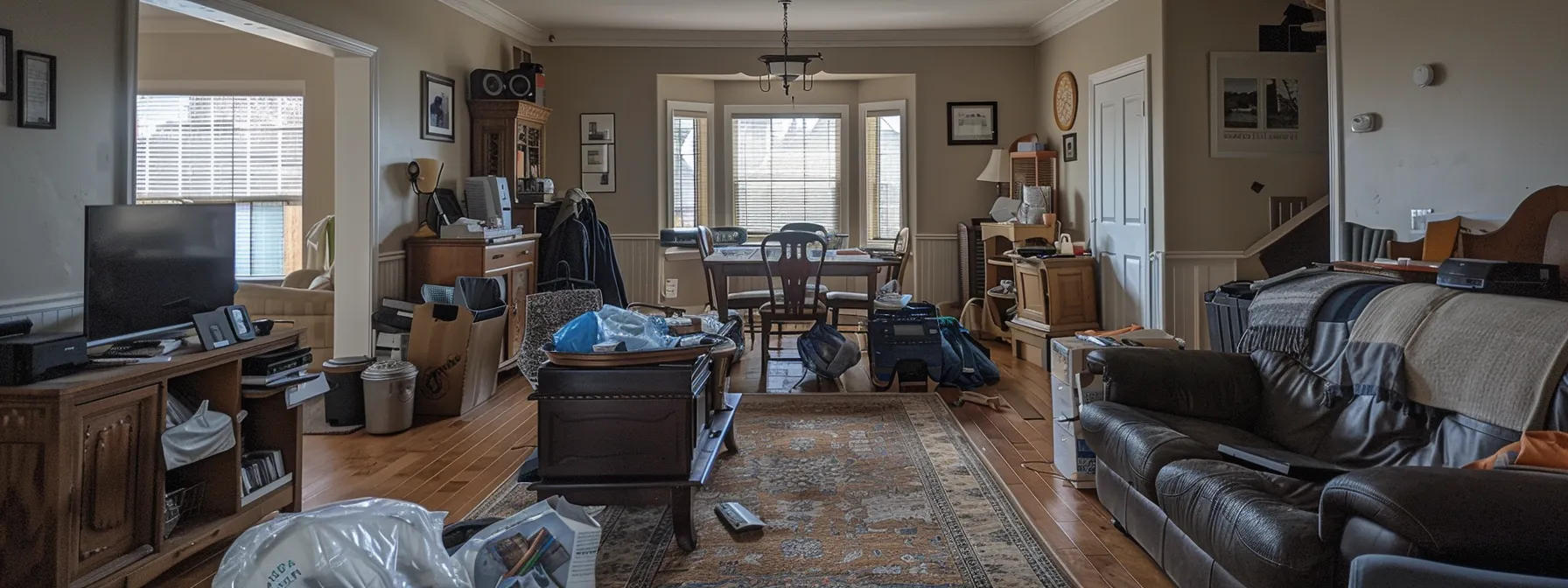Critical Pitfalls in Selling Detached Homes
Selling detached homes in Calgary can be a challenging endeavor, especially with the unique factors influenced by market analysis, the cost of living, and recent economic shifts. Homeowners have experienced difficulties, especially following the great recession, which has only increased the importance of making informed decisions during the sale process. Understanding challenges such as capital gains tax can significantly impact the final sale price and overall profits. Now is the time to learn about critical pitfalls that sellers face, which can jeopardize their chances of a successful sale. Keep reading to discover how to navigate these challenges and ensure your detached home reaches its full potential.
Essential Key Insights for Success
- Overpricing a home can deter potential buyers and extend the selling process
- Understanding market value helps sellers attract a wider range of interested buyers
- Staging and repairing a home effectively enhance its appeal and marketability
- High-quality photography is essential for creating a strong first impression with buyers
- Choosing the right real estate agent can significantly impact the selling experience and outcomes
Overpricing Your Detached Home Can Deter Buyers
Overpricing a detached home is a common misstep that can significantly hinder the selling process. Buyers often rely on market value assessments to guide their decisions, and when properties are priced above comparable listings, it can create a bias that discourages potential interest. According to the United States Census Bureau, rising interest rates play a crucial role in shaping buyer behaviour, making competitive pricing even more critical. This remains true for homes in Canada. Homes that linger on the market due to inflated prices tend to extend sales durations, costing sellers both time and money. Adjusting pricing strategies to reflect current market trends can leverage opportunities and create better outcomes, enabling sellers to align with the ideal balance of potential buyers pursuing their version of the Canadian dream.
Understanding Market Value and Pricing Competitively
Understanding market value is crucial for homeowners looking to price their real detached homes in Calgary property correctly. By assessing the prices of comparable homes in the area, sellers can avoid significant pitfalls associated with overpricing, which can lead to a negative perception that might deter potential buyers. Furthermore, pricing a home competitively helps to attract a broader range of buyers, including those seeking affordable housing options and those who may want to explore a lease-to-own arrangement.
It is also essential to consider current market conditions, such as tax sales and any local discrimination factors that might affect buyer interest. By aligning detached homes in Calgary their pricing strategy with the real estate market, sellers can ensure their homes stand out and appeal to prospective buyers, ultimately enhancing the chances of a quick and successful sale.
The Impact of Overpricing on Sales Duration
Overpricing a detached home can severely affect its sales duration, increasing the risk of depreciation over time. Buyers may perceive an inflated price as a lack of trust in the property‘s actual value, leading them to seek alternatives. This situation can be especially concerning in economic conditions where poverty levels are rising or in regions recovering from a natural disaster, as potential buyers become more cautious and selective.
How to Adjust Your Pricing Strategy for Better Outcomes
To enhance the chances of a successful sale, homeowners should adopt a flexible pricing strategy that reflects current market conditions. A well-priced home, complete with a sturdy roof and appealing features, can provide a strong return on investment, and ultimately attract a wider pool of potential buyers.
| Factor | Influence on Price | Potential Buyer Reaction |
|---|---|---|
| Market Research | Informs price adjustments | Attracts interest |
| Community Dynamics | Affects buyer perception | Builds trust |
| Property Appeal | Enhances overall value | Increases buyer engagement |
Ignoring Home Staging in a Detached Home Sale
Staging a detached home plays a vital role in capturing the attention of buyers, especially in competitive markets such as southern Alberta. Properly executed staging can highlight a property‘s features and create an inviting atmosphere, attracting potential buyers from various demographics, including the middle class. Effective budget-friendly staging tips can help sellers enhance their property’s appeal without overspending. Nevertheless, certain mistakes can diminish the effectiveness of the staging process, leading to missed opportunities, particularly in situations involving duplex sales or homes facing foreclosure. Understanding the nuances of home staging is essential for sellers who wish to comply with real estate law and maximize their chances of a successful transaction.
The Role of Staging in Appealing to Buyers
Staging a detached home effectively plays a pivotal role in attracting buyers, particularly for home sellers looking to maximise their return. A well-staged property not only enhances its visual appeal but also addresses buyer concerns related to income stability and eviction fears, creating a sense of security in their investment. Moreover, corporations aware of the latest market policies can significantly benefit from staging by presenting homes that resonate with potential buyers, thereby fostering quicker sales and better financial outcomes.
Tips for Staging Your Home Effectively on a Budget
Sellers can effectively stage their homes on a budget by focusing on strategic improvements that leverage their existing knowledge of the property and its neighbourhood. A simple decluttering process can create a more spacious feel and appeal to potential tenants or buyers who may be concerned about their debt levels. Additionally, minor cosmetic updates, like fresh paint or rearranging furniture, can transform a space, making it feel inviting without incurring significant expenses.
Mistakes to Avoid When Staging Your Detached Home
One critical mistake homeowners make when staging their detached homes is neglecting to highlight the property’s strengths in relation to its market value. By failing to showcase unique features or the potential for increased equity, sellers may lose out on interested buyers who are looking for value in their investment. A collaboration with a knowledgeable real estate agent can provide valuable insights into effective staging techniques that enhance cash flow by attracting more qualified offers.
Another common pitfall is overcrowding spaces with personal items or excessive decor that distract from the home’s true appeal. This not only diminishes the property‘s overall market value but can also lead potential buyers to question the investment’s interest compared to other options available. Simplifying and depersonalizing a space invites buyers to envision their own lifestyle within the home, thereby increasing the likelihood of a successful sale.
Lastly, overlooking the importance of repairs and maintenance can leave a negative impression on buyers regarding the property‘s condition. Buyers often equate necessary repairs with additional costs and may hesitate if they perceive potential issues as affecting their cash flow negatively. Ensuring that everything is in excellent shape before staging will not only boost interest but also enhance the overall perception of the detached home’s equity and investment potential.
Neglecting Necessary Repairs Before Listing
Addressing necessary repairs before listing a detached home is essential for attracting potential buyers in a competitive market. Identifying and prioritizing repairs can lead to increased buyer interest, especially in a recession where buyers are more cautious about their investments. Sellers should calculate the return on investment (ROI) on pre-sale improvements to ensure that expenditures align with expected market gains. Additionally, being transparent about any unrepaired issues is critical; sellers should disclose these matters upfront to build trust with prospective buyers and facilitate smoother negotiations through platforms like multiple listing service. Ultimately, considering these factors can enhance the appeal of both personal property and any accompanying commercial property, while also assisting sellers in gathering crucial contact information, such as email addresses, for follow-up inquiries.
Identifying and Prioritizing Repairs
Identifying and prioritizing repairs is essential for sellers aiming to enhance their property‘s value and appeal. A thorough inspection can reveal issues that, if addressed, can significantly boost both the inventory‘s attractiveness and the potential wealth of the seller. For instance, repairing a cracked brick exterior or fixing leaky faucets can create a more inviting atmosphere, ultimately making the property much more appealing to potential buyers who are considering their down payment options.
- Conduct a comprehensive home inspection.
- List repairs based on urgency and impact on value.
- Prioritize exterior repairs that improve curb appeal.
- Address interior issues that may concern buyers.
- Prepare to disclose any unrepaired issues transparently.
Calculating the ROI on Pre-Sale Home Improvements
Calculating the return on investment (ROI) for pre-sale home improvements is essential for sellers aiming to enhance their property’s marketability. By investing in repairs that yield high returns, such as updating kitchens or bathrooms, sellers can attract buyers while also benefiting from potential tax advantages in real estate investing. The National Association of Realtors suggests that these improvements can significantly influence mortgage decisions and capture buyers‘ attention during the selection process.
To illustrate how different improvements impact home value, consider the following table based on industry insights:
| Improvement | Average Cost | Estimated ROI |
|---|---|---|
| Kitchen Remodel | $20,000 | 80% |
| Bathroom Upgrade | $10,000 | 70% |
| Curb Appeal Enhancements | $5,000 | 90% |
How to Disclose Unrepaired Issues to Potential Buyers
Disclosing unrepaired issues is a vital step in fostering trust with potential buyers. Sellers should clearly outline any existing problems in the property, ideally within the purchase contract, to avoid misunderstandings that could impact ownership transfer. This transparency not only helps maintain a positive relationship but also allows buyers to assess their future home equity and potential tax deductions related to repairs they might undertake.
Not Utilizing Professional Real Estate Photography
High-quality photos play a pivotal role in the selling process of detached homes. They not only showcase the property’s features effectively but also influence the initial perception of potential buyers, often leading to quicker sales and better profits. Homeowners looking to stand out in a competitive market should consider their options carefully when hiring a photographer, ensuring they choose someone familiar with the nuances of real estate imagery. Additionally, a debate often arises between DIY photography and professional services; while DIY may seem cost-effective, it may lack the polish required to appeal to discerning buyers, especially in areas governed by homeowner associations where presentation matters greatly. For landlords eager to sell, engaging a professional can make all the difference in attracting viable offers.
The Importance of High-Quality Photos in Home Selling
High-quality photos are essential in the home selling process, as they create a strong first impression for potential buyers. A well-captured image of the property, including features like a well-maintained lawn, can attract more interest and invitations from buyers. This visual appeal can also assist brokers and lawyers in effectively marketing the home, navigating transactions, and ensuring that home insurance considerations are addressed, ultimately leading to a smoother sale.
Tips for Hiring the Right Photographer for Your Property
When selecting a photographer for a detached home sale, it is vital to consider their ability to evoke emotion through imagery. A photographer who understands how to bond with the property’s unique features can create compelling visuals that engage potential buyers. While there may be a fee associated with professional photography, this expense can ultimately enhance the home’s appeal, making it a valuable investment that may also have positive tax implications in the long run.
DIY Photography vs Professional: What’s Best for Sales?
In the competitive landscape of detached home sales, choosing between DIY photography and hiring a professional can significantly impact outcomes. Professional photographers possess the expertise to capture the property‘s best angles and features, appealing directly to potential buyers who may be in the market for investments or refinancing options. On the other hand, DIY efforts often lack the finesse and quality that can attract serious interest, potentially increasing stress during the escrow process.
- Professional photographers enhance visual appeal.
- High-quality images attract more buyers.
- DIY might save costs but could jeopardize sales potential.
- Strategic photography reduces stress during the selling process.
- Effective visuals aid in securing better refinancing opportunities.
Underestimating the Power of Digital Marketing
In a landscape marked by a shortage of appealing homes, sellers often underestimate the immense potential of a solid digital marketing strategy. Crafting a comprehensive online listing can significantly enhance visibility, drawing interest from prospective buyers who are actively searching for that perfect asset. Additionally, leveraging social media platforms allows for greater reach and engagement, turning casual browsers into serious contenders. Virtual tours offer an innovative way to showcase a detached home, creating an immersive experience that traditional methods cannot match. For those looking to sell real estate effectively, including properties listed for sale by owner, embracing these digital avenues can be a game changer in attracting the right audience and facilitating swift transactions.
Creating a Comprehensive Online Listing
Creating a comprehensive online listing is essential for attracting potential buyers and engaging them effectively. Sellers should incorporate detailed descriptions that highlight unique features of the home, such as recently renovated rooms or a beautiful garden wall, while also providing clear pricing strategies based on market analysis from a qualified appraiser. By ensuring that the listing stands out, sellers can maximize their chances of receiving cash offers and effectively managing inquiries through a property manager.
Leveraging Social Media to Attract Buyers
Utilizing social media can significantly elevate the chances of attracting buyers for detached homes. A veteran in the real estate market understands that creating targeted ads can connect with potential buyers looking for real estate transactions, whether they are interested in purchasing or renting a property. Additionally, highlighting the advantages of using a private equity fund for investment opportunities can capture the attention of buyers concerned about credit and financing options.
Utilizing Virtual Tours to Showcase Your Detached Home
Utilizing virtual tours presents an innovative way for homeowners to showcase their detached properties, making it easier for prospective buyers to experience the space from the comfort of their homes. These immersive experiences not only highlight the unique features of the property but also facilitate better negotiations, providing an edge in a competitive market. When paired with an experienced estate agent, virtual tours enhance the marketing strategy, offering potential buyers a clearer understanding of the property‘s layout and construction.
| Feature | Benefit |
|---|---|
| Immersive Experience | Engages potential buyers actively |
| Detailed Property Insights | Informs better negotiation outcomes |
| Accessibility | Increases interest from distant buyers |
Overlooking the Importance of a Good Real Estate Agent
Choosing the right real estate agent is a pivotal decision for homeowners aiming to sell their detached properties successfully. Agents with a strong grasp of local market dynamics can provide valuable insights, particularly regarding property tax implications and revenue potential within specific suburbs. Their expertise extends beyond mere pricing; adept negotiators ensure that homeowners are well-represented during fee discussions and contractual agreements. Understanding a professional’s background in employment within the industry, along with experience in private equity transactions, can further enhance the selling strategy, enabling sellers to maximize their property‘s visibility and appeal in a competitive market.
How to Choose the Right Agent for Selling Your Home
When selecting an agent for the selling process, homeowners should prioritise professionals who possess a proven track record in their specific market. Knowledgeable agents understand the unique demands of the property landscape and can tailor strategies that resonate with potential buyers. Their expertise greatly contributes to a smoother selling process and maximizes the property‘s visibility.
| Factor | Importance |
|---|---|
| Market Knowledge | Enhances property pricing strategy |
| Negotiation Skills | Protects homeowner interests |
| Communication Style | Facilitates smooth selling process |
Homeowners should also assess each agent’s communication style to ensure transparency and responsiveness throughout the selling process. A good fit will result in an effective partnership, making it easier to address issues as they arise. Ultimately, the right real estate agent plays a pivotal role in achieving successful transactions.
The Value of Local Market Knowledge and Expertise
Using a real estate agent with local market knowledge significantly enhances the selling experience for homeowners. These professionals understand the nuances of the neighbourhood, such as recent sales trends and demographic preferences, which can inform effective pricing strategies. Their expertise ensures that sellers have access to valuable insights, ultimately leading to quicker sales and better financial outcomes.
Key aspects of choosing an agent with local market knowledge include:
- Awareness of recent local sales trends
- Understanding community demographics and buyer preferences
- Ability to set competitive and realistic pricing strategies
Negotiating Agent Fees and Understanding the Contract
Negotiating agent fees is a critical step in the home-selling process that often requires careful consideration. Sellers should aim for a fee structure that reflects the services offered and the local market, ensuring that they receive good value for their investment. Understanding the terms of the contract allows homeowners to clarify expectations and avoid potential misunderstandings during the selling process:
- Discuss and compare agent fees based on performance and market knowledge.
- Review all terms and conditions outlined in the contract.
- Seek clarification on any fees related to marketing and additional services.
Conclusion
Sellers must recognize and avoid critical pitfalls when selling detached homes to ensure a successful transaction. Overpricing, ignoring necessary repairs, and neglecting effective staging can deter potential buyers and prolong the selling process. Engaging a professional real estate agent and utilizing high-quality marketing strategies are essential for appealing to the right audience. By addressing these key areas, sellers can maximize their property’s value and enhance their chances of closing a sale quickly.




